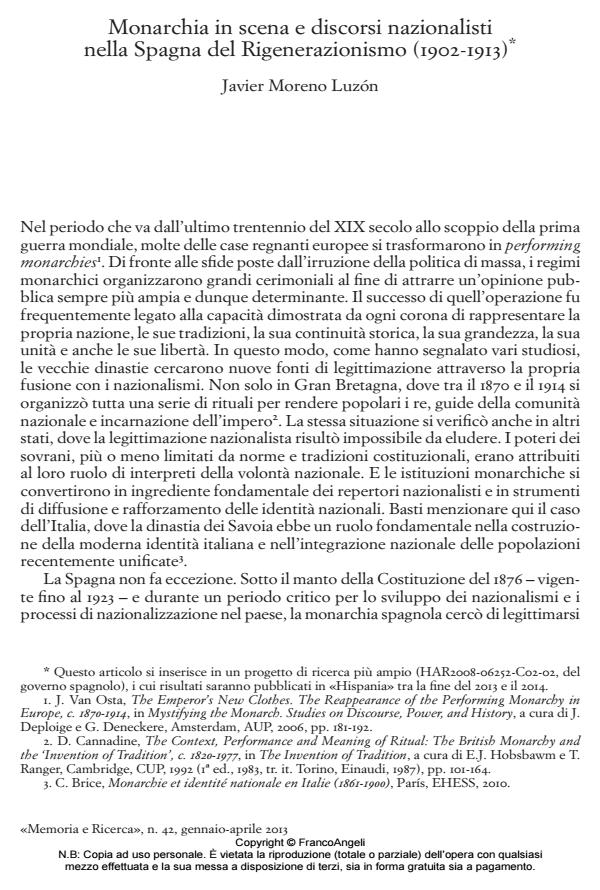Performing Monarchy and Nationalist Discourses in the Spain of "Regenerationism" (1902-1913)
Journal title MEMORIA E RICERCA
Author/s Javier Moreno Luzòn
Publishing Year 2013 Issue 2013/42
Language Italian Pages 17 P. 87-105 File size 135 KB
DOI 10.3280/MER2013-042007
DOI is like a bar code for intellectual property: to have more infomation
click here
Below, you can see the article first page
If you want to buy this article in PDF format, you can do it, following the instructions to buy download credits

FrancoAngeli is member of Publishers International Linking Association, Inc (PILA), a not-for-profit association which run the CrossRef service enabling links to and from online scholarly content.
This article studies the links between monarchy and Spanish nationalism in the first decade of Alfonso XIII’s reign (1902-1913). It focuses on three different aspects: the great monarchical ceremonies, specially the royal oath to the Constitution "or coronation"; the royal trips, extraordinarily developed; and the military ceremonies containing a strong nationalist meaning as the annual swearing of loyalty to the national flag by new soldiers. Through those performances, the crown was integrated in a national imaginary dominated by discourses and practices of regeneration of the fatherland in the aftermath of the colonial disaster of 1898: in such a regeneration, the king was thought as a necessary force. At a lower level of pomp and splendor than other european monarchies, the Spanish king was perceived as a national symbol by different groups. Among them, local elites, various associations and the heterogeneus public of the royal spectacles, shown by the mass media. Those performances reinforced the political role of a king that enjoyed constitutional executive powers.
Keywords: Spain, monarchy, nationalism, dynastic ceremonies, royal tours, army
Javier Moreno Luzòn, Monarchia in scena e discorsi nazionalisti nella Spagna del Rigenerazionismo (1902-1913) in "MEMORIA E RICERCA " 42/2013, pp 87-105, DOI: 10.3280/MER2013-042007